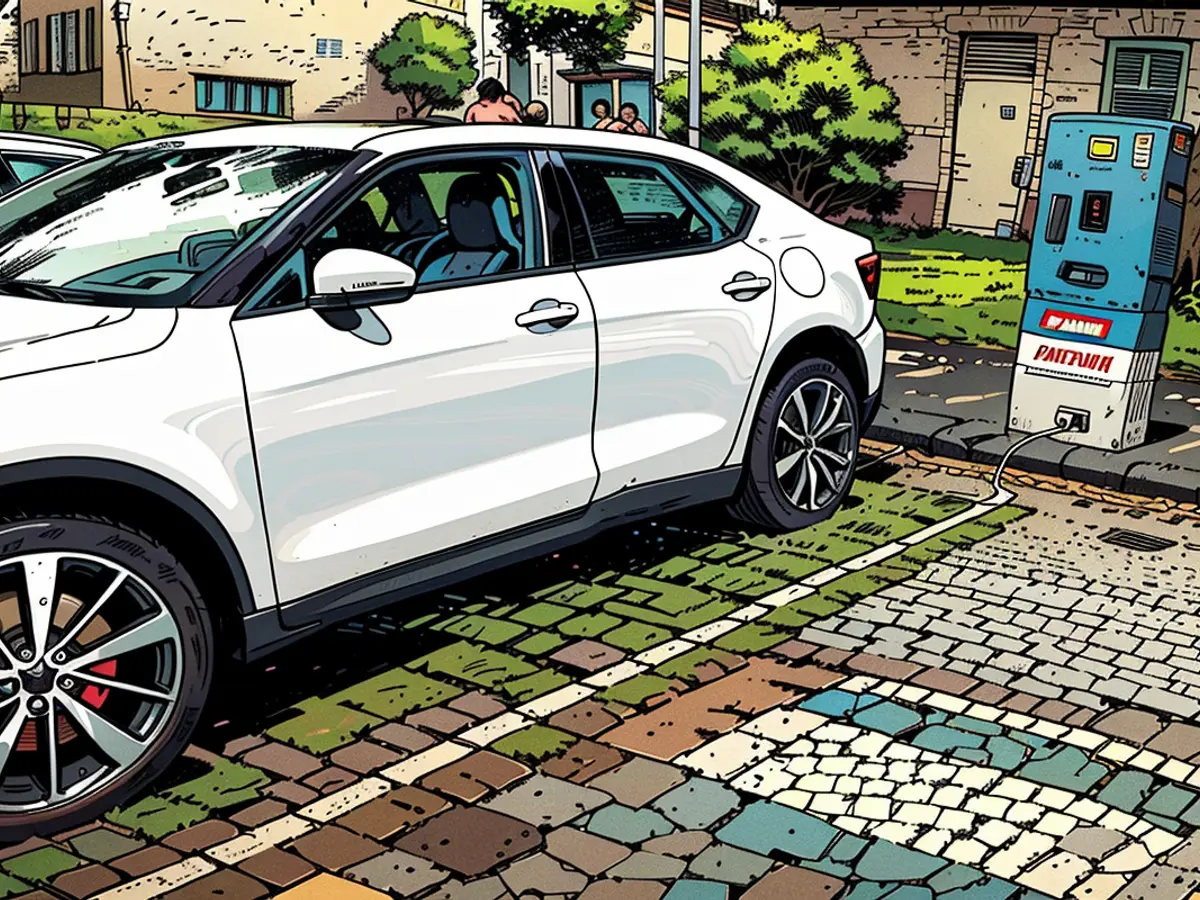Transport Ministry adjusts electric car projections downward.
The Transport Ministry study suggests a marked decrease in the number of charging stations and electric cars by 2030 compared to initial estimates. This revelation has raised concerns for an association.
The Transport Ministry's study on the advancement of electric mobility predicts fewer charging points and electric vehicles in the foreseeable future. By 2030, it is estimated that there will be between 380,000 and 680,000 publicly accessible charging stations, down from the previously targeted one million, according to the coordinating office for charging infrastructure.
Previously, the coalition agreement and the Transport Ministry were aiming for one million charging points but revised figures from the coordinating office for charging infrastructure, a subsidiary of the ministry, now anticipate only 13.4 million fully electric vehicles will be on the road.
As of now, around 1.5 million purely electric cars are registered in Germany, with access to about 100,000 public charging points. In addition, there are over one million private chargers, known as wallboxes. However, the focus has been more on the effectiveness of the charging stations in the scenarios rather than the numbers themselves. More potent fast-charging stations require fewer points, and the lower energy consumption of electric vehicles is also a factor.
A spokesperson for the Federal Transport Ministry clarified that they will adhere to the basic goals of the coalition agreement, stating, "The expansion must also be 'needs-based.'" The Federation of Electricity Trade (BDEW), who've long considered the target of one million charging points to be overestimated, was supportive of this change. "It's positive that the outdated goal of one million charging points is being abandoned," commented BDEW's managing director, Kerstin Andreae.
Despite the decrease in the number of charging points, some are still alarmed. They argue that this study is downsizing the target of 15 million fully electric passenger cars in 2030. In fact, other experts assume lower numbers altogether. Consequently, there will remain an excessive amount of charging capacity for a limited number of cars. Germany is creating goals that are 40% more ambitious than the EU's requirements. "This is overambitious and can only be achieved through state subsidies or unreasonable supply obligations, as it is economically unfeasible to establish under-utilized charging stations."
The automotive industry has pointed out that public charging capacity will still need to increase five-fold by 2030, according to the new study. VDA President Hildegard Müller stated that, in four out of ten municipalities, there is still no public charging point.
Read also:
The electrical industry is closely watching the adjustments made by the Federal Ministry of Transport regarding electric car projections. The Federal Ministry of Transport's revised transport policy for electromobility includes a significant reduction in the number of anticipated charging stations for e-cars by 2030. The automotive industry acknowledges that public charging capacity needs to increase five-fold by 2030, as stated in the Federal Ministry of Transport's new study on electromobility.








